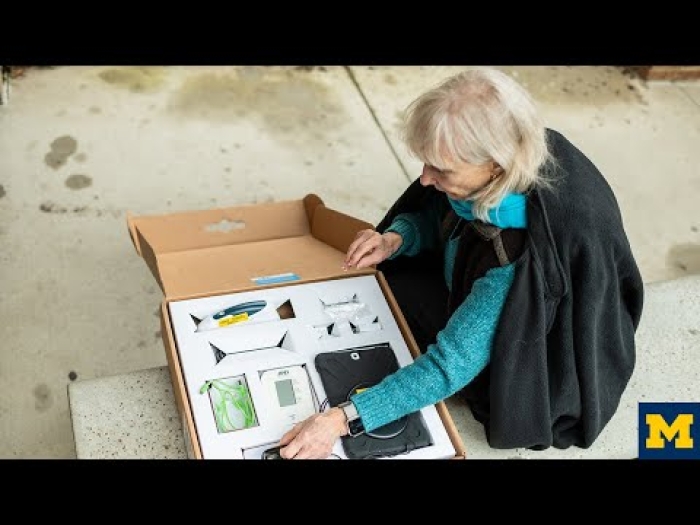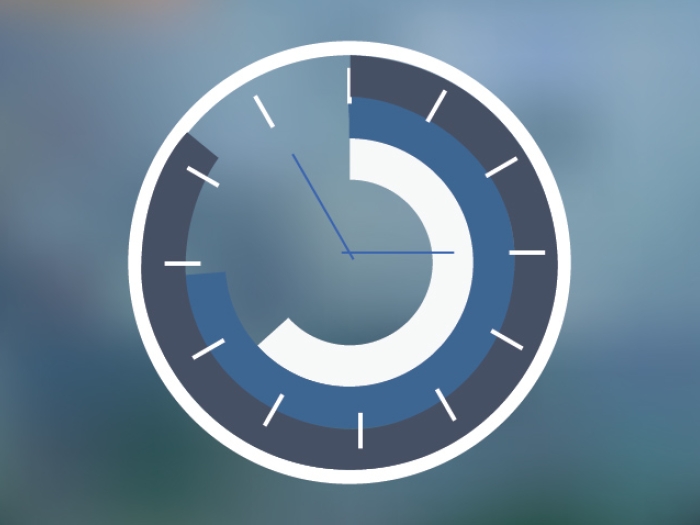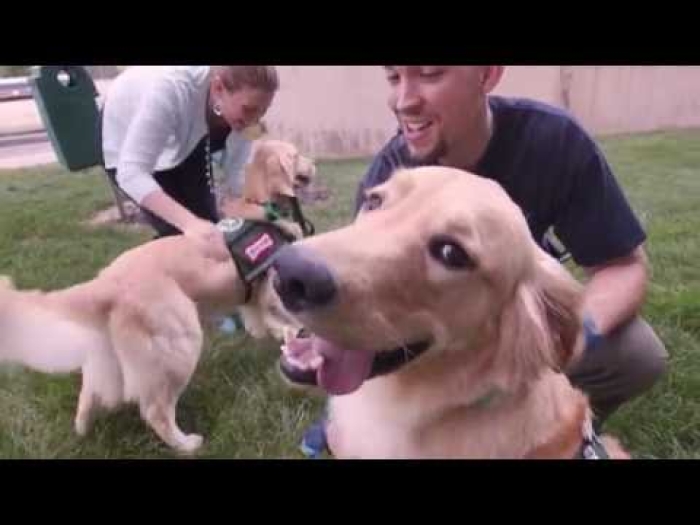Mott is using the year’s hottest gaming craze to help young patients get active and social during their stays.
1:00 PM
Author |
Last week, as millions of Pokémon Go players around the world frantically sought to catch 'em all, one young hunter at first viewed the craze with reluctance.
SEE ALSO: 'Superhero' Brothers Bonded by Rare XMEN Disease
But it didn't take long for the boy, a patient with cancer at C.S. Mott Children's Hospital, to join the bandwagon after a hospital employee held up his smartphone to reveal a shocking discovery: There are monsters in the room!
"As soon as he saw that little creature, he got extremely excited and immediately took my phone to start looking for more Pokémon — to the point where we had to tell him to slow down," says J.J. Bouchard, a digital media manager for the child life team at Mott who made the introduction.
Such enthusiasm was a welcome sign.
"This is a kid who's usually really shy," Bouchard says. "And he ended up getting other kids to come out and run around with us."
A new augmented reality game for smartphones and tablets, Pokémon Go uses a device's GPS technology and camera to make the fictional species appear on screen as if they were present in real life.
Because players must get out and explore their surroundings to locate and "capture" the Pokémon, it has been cited as a means to boost physical activity and ease anxiety and depression.
That explains why, within days, it has become common at Mott to see children and clinicians alike scouring the grounds in search of the virtual critters.
Among the top destinations is the well-known Big Bird statue near one of Mott's entrances, which happens to be a Pokémon "gym," where trainers can virtually battle each other.
There's even a hashtag — #PokeMott — for Pokémon Go hunters to share screen grabs and details of their quests on social media.
After seeing Pokémon ... all of a sudden the hospital becomes more of a magical place than one of disease and fear.Nicholas Helmstetter, M.D.
More than a game
Tech-savvy patients enjoy the game's interactive element, Bouchard says, while some Mott staffers of a certain age recall the same Pokémon characters from their own childhoods when the franchise arrived two decades ago.
SEE ALSO: Four Miraculous Kids, One First-Grade Classroom
It's no surprise, then, that a mutual love of the game has brought both groups together.
Never mind that the exchanges occur in a hospital setting.
After all, photos of "doctors and nurses look funny when they're standing next to a little creature and they can't see," Bouchard says. "It has allowed adults and kids to engage in a way I haven't seen in a long time."
Although most users might view Pokémon Go as a leisure activity, even a brief respite of play could have an impact on young patients, says Nicholas Helmstetter, M.D., a third-year resident in internal medicine and pediatrics at the University of Michigan.
And the game's many perks go beyond fighting bouts of cabin fever.
"After seeing Pokémon or battling trainers or finding Pokéballs or potions," says Helmstetter, himself a Pokémon Go fanatic, "all of a sudden the hospital becomes more of a magical place than one of disease and fear."
It has also been an effective tool for Mott's child life and occupational therapists to get their young patients up and moving.

Staying mindful and safe
Reports of injuries and criminal activity tied to Pokémon Go have peppered the news in recent days, but Mott hasn't experienced any significant issues — and its security teams are keeping watch.
Signs posted around the hospital last week remind Pokémon hunters not to take photos of other patients or visitors out of respect for privacy.
For now, the benefits of promoting the therapeutic value of Pokémon Go seem to outweigh potential negatives at Mott.
A major plus: Young patients are connecting with one another.
Bouchard recalled a young girl who was reluctant to leave her room last week. En route to physical therapy, she encountered the young boy with cancer who had just discovered Pokémon Go.
Quickly, and thanks to the technology, they bonded.
"It created kind of a social situation and formed a little friendship ... two patients who probably wouldn't have met otherwise," Bouchard says. "It was really cool to see that."

Explore a variety of health care news & stories by visiting the Health Lab home page for more articles.

Department of Communication at Michigan Medicine
Want top health & research news weekly? Sign up for Health Lab’s newsletters today!





